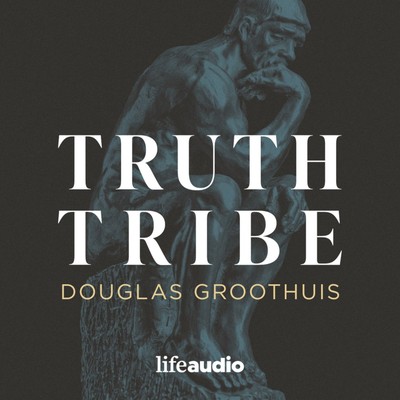
Truth Tribe with Douglas Groothuis
Douglas GroothuisThe Moral Argument for God's Existence
September 23, 2024 ● 48 minShare this episode
We're glad to share this crossover episode of THE CHARGE with Dennis Metzler. In this episode, Dennis and Doug sit down and discuss the moral argument for the existence of God, a key aspect of natural theology, setting the stage for a deeper exploration of this philosophical topic. Join Dennis and Dr. Grothuis for an insightful discussion on the intersection of morality and belief in God.
The moral argument for God is a philosophical position that asserts the existence of objective moral values, which are best explained by the presence of a personal, transcendent God. This argument stands in contrast to moral relativism and atheistic frameworks, which struggle to provide a satisfactory foundation for morality.
Objective Moral Values
At the heart of the moral argument is the assertion that objective moral truths exist. Dr. Groothuis emphasizes that statements such as "it is always wrong to torture the innocent for pleasure" are not merely subjective opinions but are necessarily true. This leads to the first stage of the argument, which critiques moral relativism. Moral relativism posits that moral values are determined by cultural consensus or individual preferences, suggesting that what is deemed right or wrong can vary from one culture or person to another.
Critique of Moral Relativism
Dr. Groothuis identifies several significant problems with moral relativism. One major issue is that cultures can and do make moral mistakes. For instance, the historical justification of slavery by certain cultures demonstrates that cultural consensus is not a reliable measure of moral truth. If a culture endorses a practice that is fundamentally wrong, such as slavery, it cannot be justified merely because it is accepted by that culture. This leads to the conclusion that there must be some objective standard by which to judge moral actions, which moral relativism fails to provide.
Furthermore, Dr. Groothuis argues that if morality is entirely relative to individual or cultural perspectives, it ultimately leads to nihilism—the belief that nothing has any ultimate value. This progression from cultural relativism to individual relativism and then to nihilism illustrates the inadequacy of a relativistic framework for grounding moral values.
The Role of a Personal God
In contrast to moral relativism, the moral argument posits that a personal, transcendent God is the best explanation for the existence of objective moral values. Grothuis articulates this in a deductive format:
-
If a personal God does not exist, then objective moral values do not exist.
-
Objective moral values do exist.
-
Therefore, a personal God exists.
This structure highlights that the existence of objective moral values necessitates a moral lawgiver—God—who provides a foundation for these values. Dr. Groothuis argues that without God, moral truths cannot be adequately explained. Atheistic frameworks, such as those that attempt to derive morality from evolutionary processes, fail to establish a basis for moral obligation or meaning. Simply put, survival does not equate to moral goodness, and one cannot derive an "ought" from an "is."
Atheistic Moral Realism
Some atheists may argue for a form of moral realism, claiming that objective moral truths exist independently of God. However, Dr. Groothuis critiques this position by stating that it presents a bizarre ontology. If moral truths exist in a godless universe, they are abstract and disconnected from any purpose or meaning. This raises the question of how humans, who are not designed to know these truths, can access them. The lack of a personal relationship with a moral authority undermines the concept of moral obligation, which is essential for a coherent moral framework.
Conclusion
In summary, the moral argument for God asserts that objective moral values exist and are best explained by the existence of a personal, transcendent God. This argument effectively counters moral relativism and atheistic frameworks, which struggle to provide a solid foundation for morality. By positing that God is the source of moral truth, the moral argument offers a compelling explanation for why certain actions are universally recognized as right or wrong, thus affirming the necessity of a divine moral lawgiver in understanding the nature of morality.
For more from Dr. Groothuis, visit DouglasGroothuis.com.
Discover more Christian podcasts at lifeaudio.com and inquire about advertising opportunities at lifeaudio.com/contact-us.
Today's Devotional
A Prayer to Jehovah Jireh - The Lord Will Provide - Your Daily Prayer - April 8
Our good God always provides, and it is always so beautiful.
Top Artists
Top Music Videos

toby mac TobyMac Unveils ‘Heaven on My Mind’ Lyric Video

Tauren Wells Tauren Wells’ Soul-Stirring ‘Thank You for The Cross’

Anne Wilson Anne Wilson Wows With 'God and Country' Live Performance

Crowder Crowder's 'Grave Robber' Catchy And Upbeat Tune About The Difference God Makes

Riley Clemmons Riley Clemmons 'Jesus Cries' Official Music Video










